The Curious Case of Esports: Passion or Addiction?
Esports is the fastest-growing sport in the world and millions of esports enthusiasts dream of careers as professional players. However, there are benefits and risks of striving to compete at the top level.
This blog looks at what it takes to become a professional esports player and how there is often a blurred line between gaming passion and gaming addiction.
What is esports?
Esports is live competitive video gaming. As with traditional sports, professional players compete in tournaments and championships, watched by millions of people worldwide, with huge prize money at stake.
There are also non-professional players – including scholastic esports players – who spend a significant amount of time practicing and playing. In fact, across the US, 175 universities and colleges are members of the National Association of Collegiate Esports (NACE)1 and offer varsity esports programs.
Global interest in esports is likely to be fueled by its debut at the Commonwealth Games 20222 and Asian Games 20223, and its potential inclusion in the 2028 Olympic Games4. Read our article to find out more about the future of esports.
Download our Esports 101: What Professionals Need to Know.
Esports industry insights
Newzoo’s Global Esports and Live Streaming Market Report 20225 analyzes the latest esports statistics, industry trends and market developments. These key insights demonstrate the continued rise of esports worldwide:
- The global esports audience will grow 8.7% year on year to 532 million in 2022. It is expected to reach 640 million by 2025.
- Esports enthusiasts (people who watch esports more than once a month) will represent around 261 million people in 2022. This figure is predicted to grow to 318 million in 2025 – an CAGR of 8.1% from 2020-2025.
- By the end of 2022, global esports revenue will be nearly $1.38 billion. China currently accounts for almost a third of worldwide esports revenue.
Healthy gaming versus problematic gaming
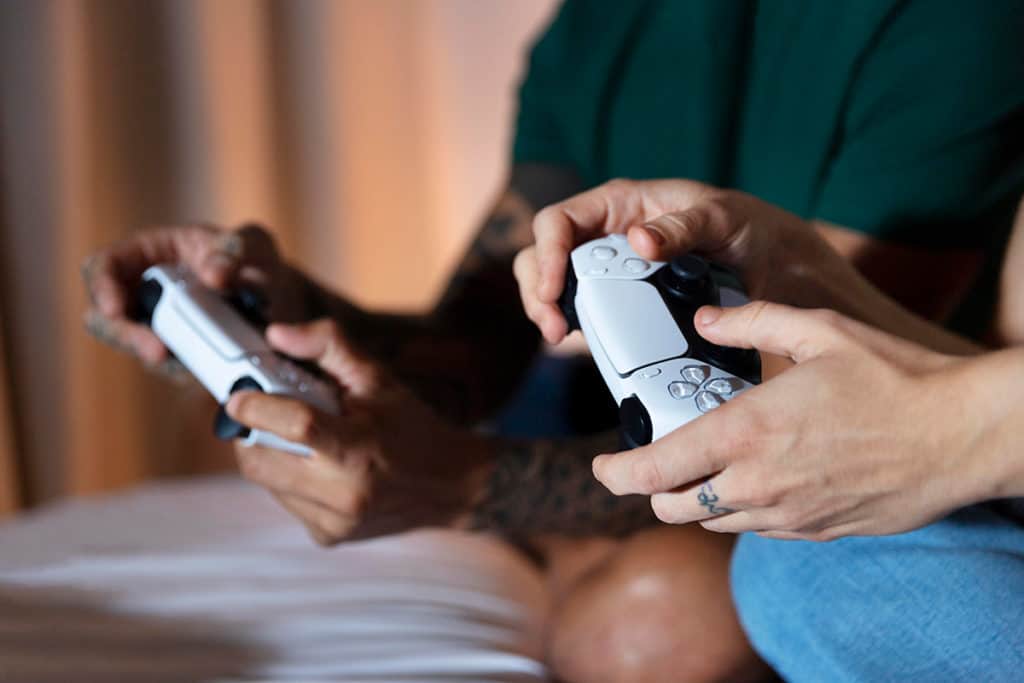
A career as a professional player is hugely appealing to esports enthusiasts for the financial rewards and celebrity status. However, only a few make it to the upper echelons of the sport. In order to stand a chance of success, players must put in hours of practice and prioritise esports over other areas of their lives. This is where there is currently a gray area between highly involved but healthy gaming and disordered gaming/gaming disorder.
According to 2017 research by Nielsen and Karhulahti – ‘The Problematic Coexistence of Internet Gaming Disorder and Esports’ – becoming a professional player requires huge commitment. Those striving for an esports career put in six to 12 hours of esports play and related activities each day6 – almost all their waking hours – but is this dedication unhealthy? In its Diagnostic and Statistical Manual of Mental Disorders (DSM-5), the American Psychiatric Association outlines nine symptoms of gaming disorder:
- Preoccupation with internet gaming
- Withdrawal symptoms when not gaming
- Needing to spend more time gaming to feel the same thrill
- Unable to cut down or stop gaming
- Loss of interest in other hobbies and activities
- Continuing to game even when it causes problems
- Lying to friends and family about the amount of time spent gaming
- Using gaming to relieve negative feelings
- Having jeopardized a relationship or lost a career or education opportunity due to gaming.
Many players aiming for a professional esports career are likely to display five or more of the above symptoms. However, Nielsen and Karhulahti recognize that the DSM-5 criteria has not kept up with developments in esports culture and therefore does not seem to be able to distinguish problematic play from competitive play. They believe that: “As a result, dedication might be misread as addiction.”
In 2019, Billieux et al researched high involvement versus pathological involvement in video games7. They found: “Increasing evidence supports the view that intense video game playing may involve patterns of gaming that are characterized by high involvement but that are non-pathological.” They concluded that it is vital to distinguish between high and pathological involvement, so that healthy gaming habits are not misdiagnosed as problematic gaming or gaming disorder.
A 2022 study by Maldonado-Murciano et al – ‘Disordered gaming in esports: Comparing professional and non-professional gamers’8 – investigated the suitability of the American Psychological Association (APA) and World Health Organization (WHO) gaming disorder criteria for diagnosing disordered gaming among professional and non-professional gamers in the context of esports. They found that professional gamers may be at greater risk of disordered gaming than non-professional gamers. The study also concluded that the APA and WHO criteria are suitable for the assessment of disordered gaming in esports. However, further investigation is required.
What are the benefits of esports?
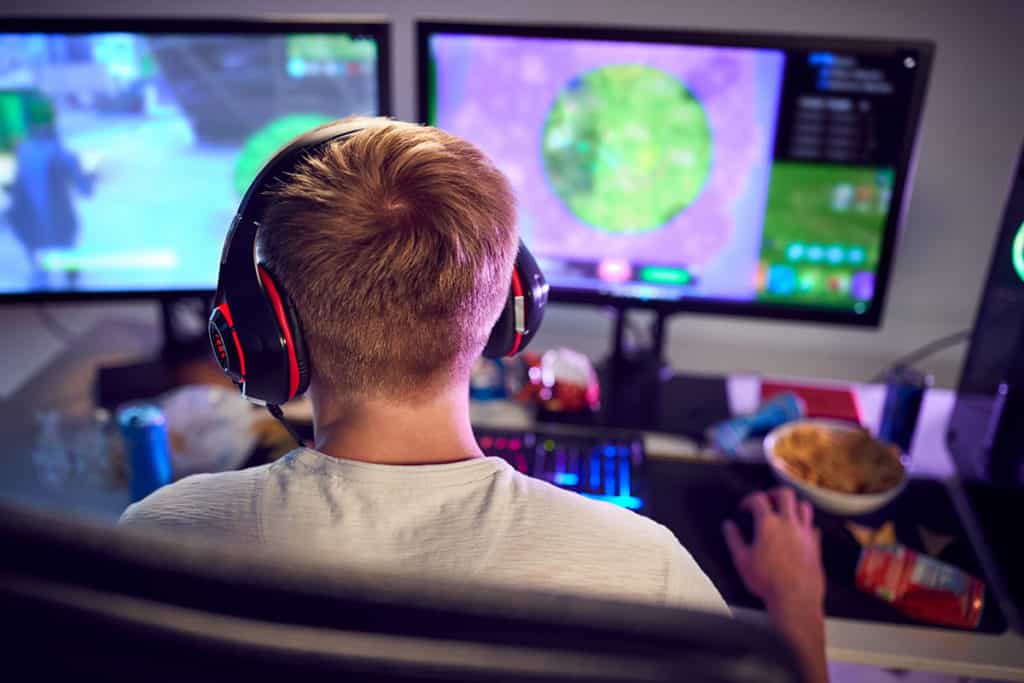
Becoming a top-level esports player can be highly lucrative but there are multiple benefits for non-professional players too. Participating in esports can boost academic performance and help develop social skills. While teamwork, communication, decision-making and commitment are skills honed in traditional sports and esports, competitive gaming has some additional advantages. According the National School Boards Association (NSBA), young people who engage in esports have better attendance (+10%) and get better grades (GPA +1.7)9 than those who don’t play esports. In fact a 2020 Forbes article revealed evidence that a well-planned esports program can support STEM – science, technology, engineering and mathematics – learning in a number of ways10.
There are also a wide range of career opportunities within the esports industry. Aside from becoming a pro player, there are jobs in sales, marketing, operations, sponsorship, event planning, coaching and other areas. As the esports industry continues to grow, so will the number of openings – from junior-level posts to C-suite positions.
What are the risks of esports?
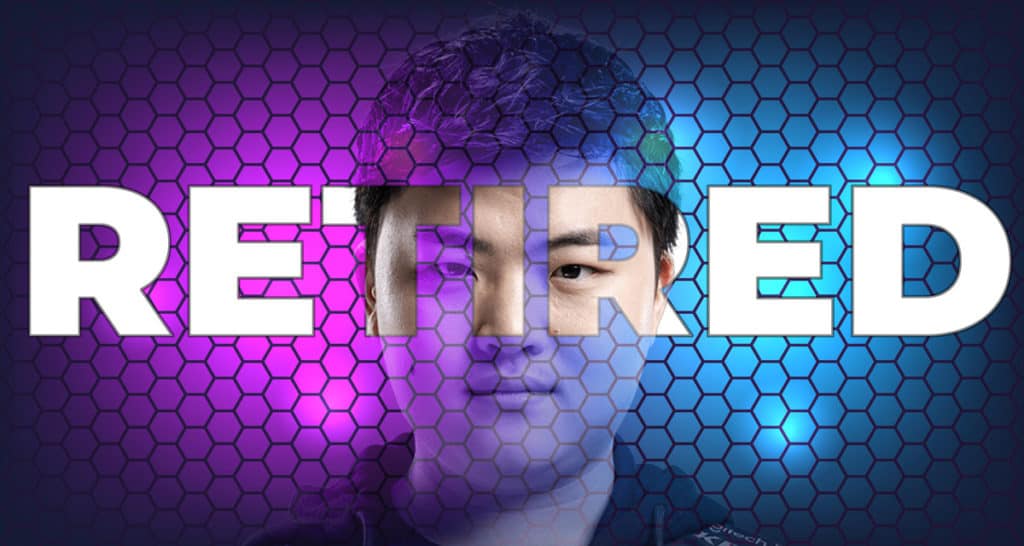
There are other potential risks associated with esports apart from problematic and disordered gaming. These can affect both professional and non-professional gamers and include:
Physical health issues
- Exhaustion through lack of sleep
- Dehydration
- Obesity from unhealthy diet
- Vision problems
- Headaches
- Repetitive strain injury
- Aching muscles
- Poor hygiene.
Mental health problems
- Depression
- Social anxiety
- Loneliness
- Stress.
Other risks
- Lack of interest in other activities
- Conflict at home
- Breakdown of relationships with friends and family
- Cyberbullying
- Internet safety risks from online predators.
Is esports good or bad?
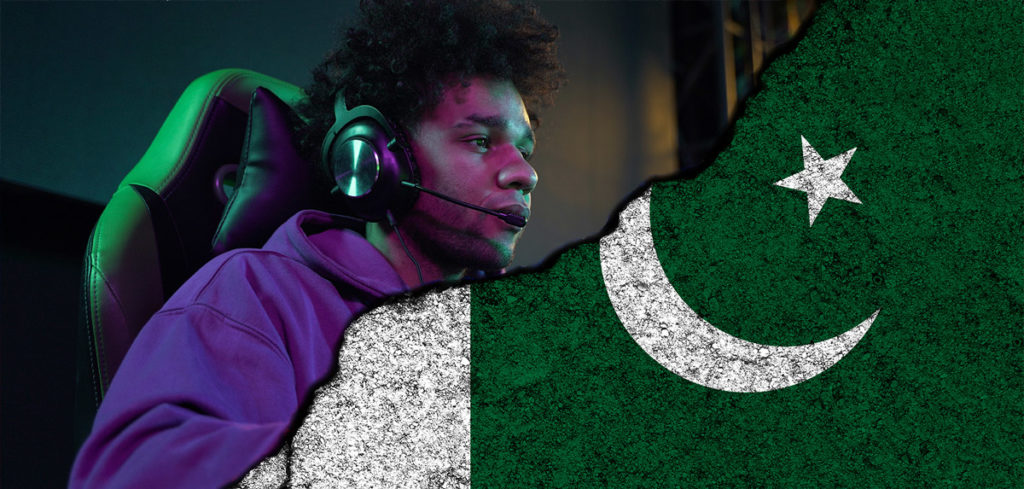
We are often asked: “Is esports good or bad?” The answer depends on the person involved. Esports can provide young people with a multitude of benefits for their personal growth and professional development, as demonstrated above. However, it is crucial that proper safeguards are in place to ensure gameplay stays healthy, to mitigate the risks identified, and does not develop into an addiction.
A 2019 study by Chung et al investigated: ‘Will esports result in a higher prevalence of problematic gaming?’11 It concluded that with the rise of esports it is reasonable to expect an associated rise in problematic gaming leading to an increased prevalence of disordered gaming/gaming disorder.
Help your clients develop healthy esports habits
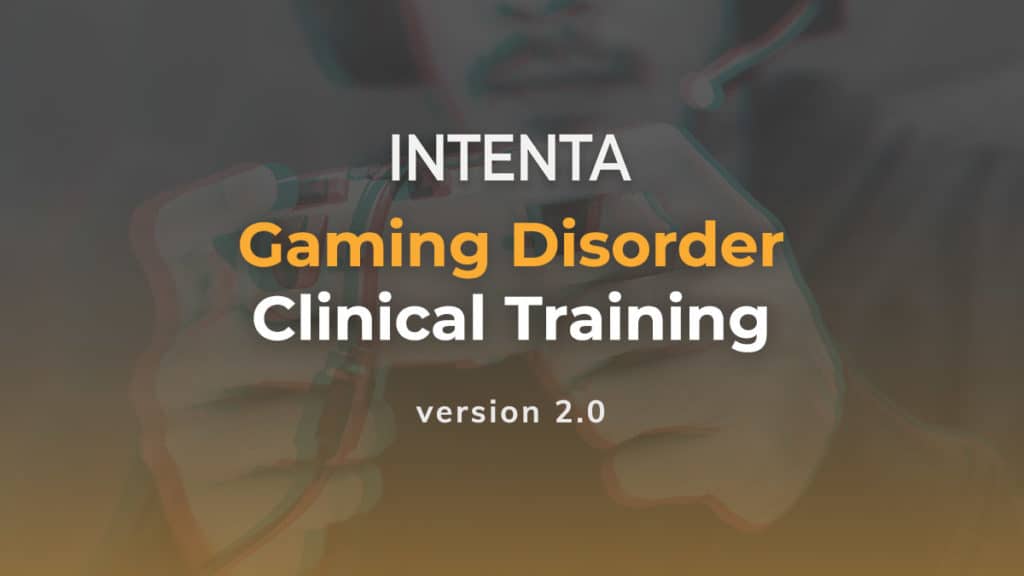
Clinicians need to understand esports to help highly-involved players develop positive gaming habits and balanced mental health. Module 1 of our Gaming Disorder Training covers the prevalence of esports; gamer identity; community and gamer culture; stereotypes and stigma about gaming; the many benefits of playing video games and people’s varied motivations for playing.
Other modules help clinicians understand what is gaming disorder and equip them with practical prevention tools, intervention strategies and mental health resources to help players enjoy a safer and healthier relationship with esports.
Find out more about Gaming Disorder Clinical Training to improve your quality of care for players and their families.
Footnotes:
- https://www.ncsasports.org/college-esports-scholarships/varsity-esports
- https://olympics.com/en/news/commonwealth-esports-championships-birmingham-2022-games-titles
- https://olympics.com/en/news/fifa-pubg-dota-2-esports-medal-events-asian-games-2022
- https://qz.com/2036452/when-will-esports-join-the-olympics/
- https://newzoo.com/insights/trend-reports/newzoo-global-esports-live-streaming-market-report-2022-free-version
- https://s3.us-west-2.amazonaws.com/secure.notion-static.com/4ddec306-232c-4c3b-acc3-ef6aac2f3e69/NielsenKarhulahti2017.pdf?X-Amz-Algorithm=AWS4-HMAC-SHA256&X-Amz-Content-Sha256=UNSIGNED-PAYLOAD&X-Amz-Credential=AKIAT73L2G45EIPT3X45%2F20220613%2Fus-west-2%2Fs3%2Faws4_request&X-Amz-Date=20220613T135806Z&X-Amz-Expires=86400&X-Amz-Signature=cd2eaaf824cb3fbd62cbd5aa281f40b55210b0e8e30bca356ea7a0e081c80b12&X-Amz-SignedHeaders=host&response-content-disposition=filename%20%3D%22NielsenKarhulahti2017.pdf%22&x-id=GetObject
- https://link.springer.com/article/10.1007/s40429-019-00259-x
- https://pdf.sciencedirectassets.com/271863/1-s2.0-S0306460322X00063/1-s2.0-S0306460322001083/main.pdf?X-Amz-Security-Token=IQoJb3JpZ2luX2VjEGwaCXVzLWVhc3QtMSJIMEYCIQCKmQWtQqa7fowehl%2B1PplCymX3zrKju4uoSq2pME8bSwIhAJcq%2BdFBKW5I3byVs0yBxqwpGbaS2AtzFmB5Q%2BIc%2Bek1KtIECHUQBBoMMDU5MDAzNTQ2ODY1IgwoU7QzPNmaqEH5BqkqrwR29arZ9dhZ9ITGMixEWV6xKoqfGPP%2Fjfkn7JWjBpHMKXhfiUAUpYC9DN2GKGg2XCQz6Dxt01Wt0yVeHqoWKHHDYYawPDtyhKOyhjE4F4u7KfAVWtBfoGcYfvE7sstIOtPJ0yH6w8WPA%2BdWsOeiehN2gvG4dp5VPlczW0sq3rzG%2FL1amt84JzlCfGw24G3qWGvTW%2FZZtbX2UxQJKvKsYa6lje37csbuafva%2B22IAHiP%2B9U5zVoBfOtEnM0x3njyGfROzRss63xYwTEWxZLcidjB8%2FsU52gmX%2FjyQSqWb1gyrt%2B1WQdD4QoItdhC8SkDoxAPeNcBw0ebvynHGOwzwQiez08SRh9UDn3fO%2BZzYhMPpAqydhs2%2BW%2FSys8oFRygx1eAj3eU%2BZe2PcIw81YuMilIPBCkuPataEZW9Iu0%2FGdPujQES0joAKMOsEYZKJgRn0ChI%2BTVcbvgyQPyisrCaWXJ%2BAwAXlpp%2FywLIOHUc3xajDaYT8ia8N1Gz9wQMUfH1669pvaZiLjImmmtWHAMl7I5ziQhIShqFCnpZAla2TDU08nfuBl4VXpTAezE1eS8p3DcViNxUkizSr0wFgyB%2FP0J5ACBzZL56ESeIBYvOJjev%2Fg9Fu0cnBnr0bKHnqS6WmVrn9Z40rJAK%2FpvKpwiluldAMIOic58dKodud5VaYUejw3ynDWx3WjP%2F8smMS12rCcY9B5xTJ2drqlBsBcaaumlmQH8p0ygZucutNNx%2BWnfMLrGnJUGOqgBQ3IrezFOZMOAF0EvDo5zBnWXiCDrfneW98SnJmL%2BAJbylruVCRM8%2BCYh47apIVEC9HGNdTCJfyqmPXCYGEblKLFIXkIR5SBn4exhktwdSpmLDr74cyAmwemKmP6u7BziRuetr1uuridK6XOyHrbbvEgzWbDPAOy36VZN42%2FGaE4072m66dgdW%2Fw9L36TsGV8g7tDZ5qkdEjdaL24%2B4O%2Ba6Lb%2BmYkBBk6&X-Amz-Algorithm=AWS4-HMAC-SHA256&X-Amz-Date=20220613T121737Z&X-Amz-SignedHeaders=host&X-Amz-Expires=300&X-Amz-Credential=ASIAQ3PHCVTY55GOLOCF%2F20220613%2Fus-east-1%2Fs3%2Faws4_request&X-Amz-Signature=481b97a6fde7f2bd2d45e4d6515265d270bf2184c14c150716aa702cd4974c95&hash=838549d223078a1631483d8d4b8d278b339a891dee42c40b3faa945cbbcfedb1&host=68042c943591013ac2b2430a89b270f6af2c76d8dfd086a07176afe7c76c2c61&pii=S0306460322001083&tid=spdf-50446803-1d05-40e5-813f-ed9749bb835b&sid=226b309a9673a0425c688357a3c4fcf191afgxrqb&type=client&ua=4d530307065158045956&rr=71aac39f89327762
- https://www.nsba.org/ASBJ/2020/February/esports
- https://www.forbes.com/sites/forbestechcouncil/2020/04/16/esports-and-stem-education-a-2020-perspective/?sh=74d9d6884eae
- https://www.ncbi.nlm.nih.gov/pmc/articles/PMC7044624/
Subscribe to Trends & Insights
Enter your email to receive monthly trends, insights and resources on gaming and digital disorders.
Subscribe to Trends & Insights
Enter your email to receive monthly trends, insights and resources on gaming, esports and mental health.

